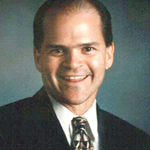Treating Dyslexia Symptoms With Vision Therapy
When most parents take their kids to an optometrist, they expect to come home with a prescription for eyeglasses, contacts or even an eye patch.
But Dr. Rick Graebe of the Children’s Vision and Learning Center in Versailles knows that for some children a prescription is only part of the answer.
In fact, parents often come to him not because their children can’t see well, but because they can’t read well.
“We are seeing an increase in dyslexia diagnoses,” Dr. Graebe said. “I’ve seen it six times in the past month.”
Although it may seem strange to visit an eye doctor for help with a learning disability, Graebe’s Vision Therapy program actually uses some of the latest research to help kids overcome the symptoms of dyslexia.
Recent studies by Margaret Livingstone, a neurobiologist at Harvard Medical School, show that approximately 75% of patients diagnosed with dyslexia have binocular vision disorders.
In the general population, the rate is 10-25%.
Binocular vision describes how well the eyes work in tandem.
When you read or do close-up work, your eyes not only have to work together to focus on a single point, but they must move across the page or computer screen as well.
If the eyes aren’t working well together, reading can become difficult or nearly impossible.
This can lead to a diagnosis of dyslexia.
“We can test to see if visual efficiency is a contributing factor in preventing you from learning to read,” Graebe said.
If this is the case, Vision Therapy, a kind of physical therapy for the eyes, brain and body, can be an effective form of treatment.
The “treatment” is more like play than work for children because it is rooted in hands-on, multi-sensory activities.
Children play with Play-Doh, trace letters made of sandpaper, and play games where they try to guess the letter a therapist “draws” on their back.
“We use the other senses to wake up the visual system,” Graebe said.
“We don’t say that we can cure dyslexia or cure ADD. But we can cure the symptoms of those conditions.
“If you can get past the diagnosis and the labels placed on reading difficulties, this can be an option.
“We have success with it all the time and it changes people’s lives.”

